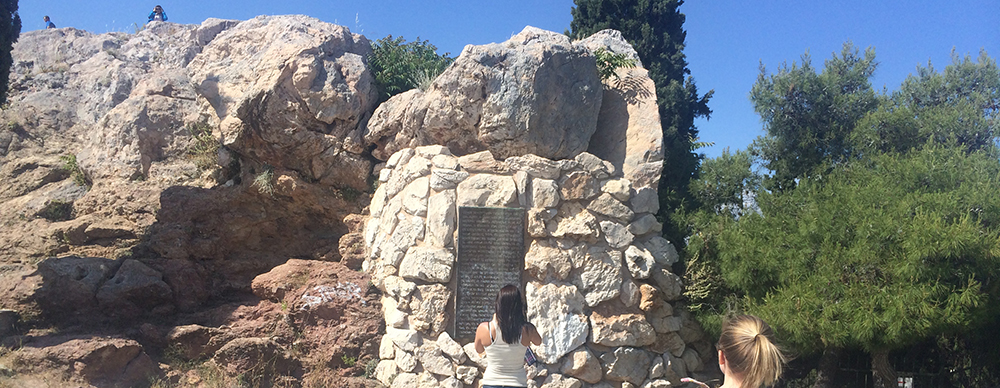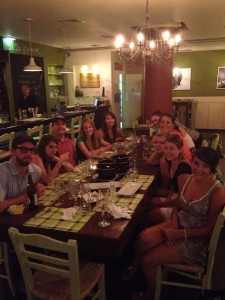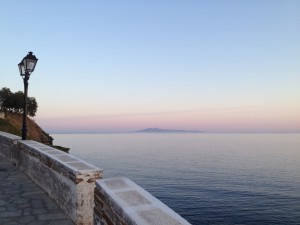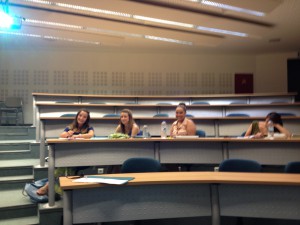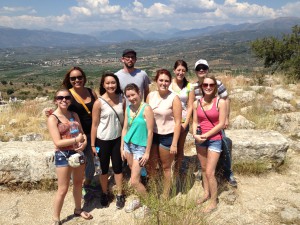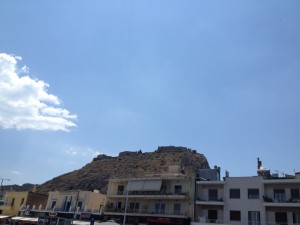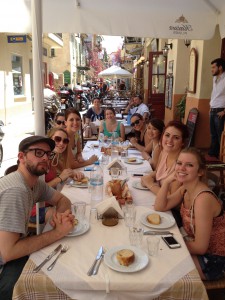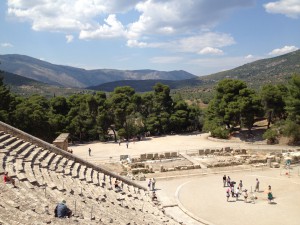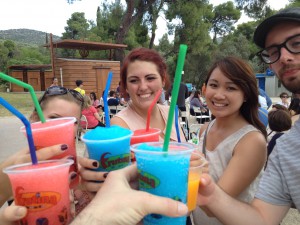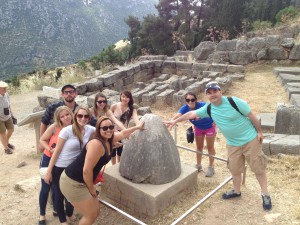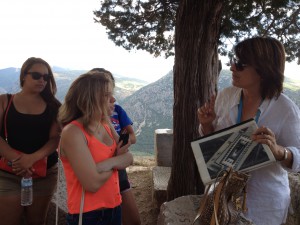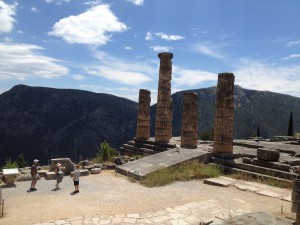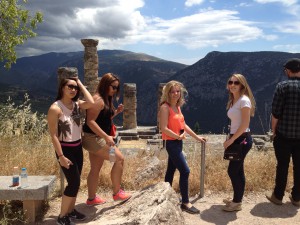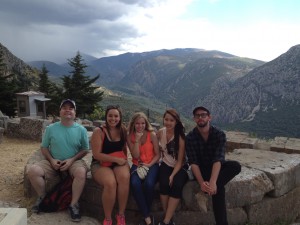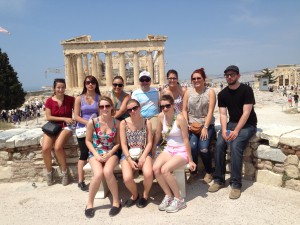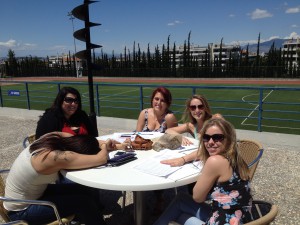On Wednesday, June 18 at around 11:00 A.M. local time, I parted ways with the students as they climbed aboard a bus headed for the Venizelos Airport. As they said goodbye to one of their favorite resident advisors from the ACG dorm, I felt the pressure building in my sinuses and the water welling up in my eyes, though I wasn’t entirely sure why. I would surely see them again on the UMass Lowell campus, and I had a week left on my own in Greece. In part, I was envious and wanted to join them—five weeks is an awfully long time to be away from home. In part, I was sad for them, that their Greece experience had come to an end. But mostly, I just hate endings and goodbyes. Who doesn’t, right? So, instead, I will dedicate this (likely) final blog post to beginnings.
The course and the trip are over, so what kind of beginnings do I have in mind? Almost exactly 29 years ago, when I was just a few years younger than the students are now, I returned from my first European trip. At the time, I had no idea how utterly and completely the experience would transform me. Once we reach a certain age, we can start to assess the impact of certain events and experiences on our lives, and I can think of few experiences that have left a greater or more lasting impression. Knowing the ways in which this adventure altered the course of my life, I want to share some of my hopes for what students will take away from their experience.
First, I hope it helps to ignite a lifelong passion for travel, a passion that will take them all over the globe. At UMass Lowell we talk a lot about making students “world ready.” Obviously, no lecture or class discussion or reading can even come close to the kind of “on the ground” learning experience that traveling abroad provides. I hope that students’ open hearts and minds, which spurred them to enroll in the course in the first place, continue to be nurtured and to seek inspiration from new sights and sounds and flavors. On a related note, I hope the trip and the course contribute to an appreciation of diversity and a healthy skepticism toward processes of globalization that threaten to extinguish cultural difference in a way analogous to the threat extinction poses to biological diversity.
I also hope that the opportunity to step outside one’s culture and oneself—the critical distance it provides that in turn allows the proverbial fish to finally perceive the water—contributes to the further honing of their critical thinking skills. Too often, the average undergraduate seems to assume that critical thinking just means criticizing other people and new ideas. But it also involves the ability to turn the critical gaze inward, to question our most cherished assumptions. This is a hallmark of the mature mind, a prerequisite for informed engagement in a pluralistic society, and a first step toward the kind of creative problem-solving that might yet save our planet. And contrary to what some contemporary critics of higher education contend, critical thinking does not mean rejecting everything you’ve ever been taught to think, value, or believe, and it certainly doesn’t require sacrificing one’s love of home or country. Indeed, if anything, the kind of critical thinking that travel ideally fosters can actually deepen an appreciation of home, even as it complicates this love. I know it has for me. After all, how can you appreciate a sunny day without ever enduring a rainy one?
All of this and more I wish for students. But I better stop now or else risk venturing into the territory of cheap sentiment. So before I tell them that “I hope they dance,” I will bid our few, dedicated readers Για σου (yassou), or, better yet, τα λέμε (ta leme)—we will talk again!
